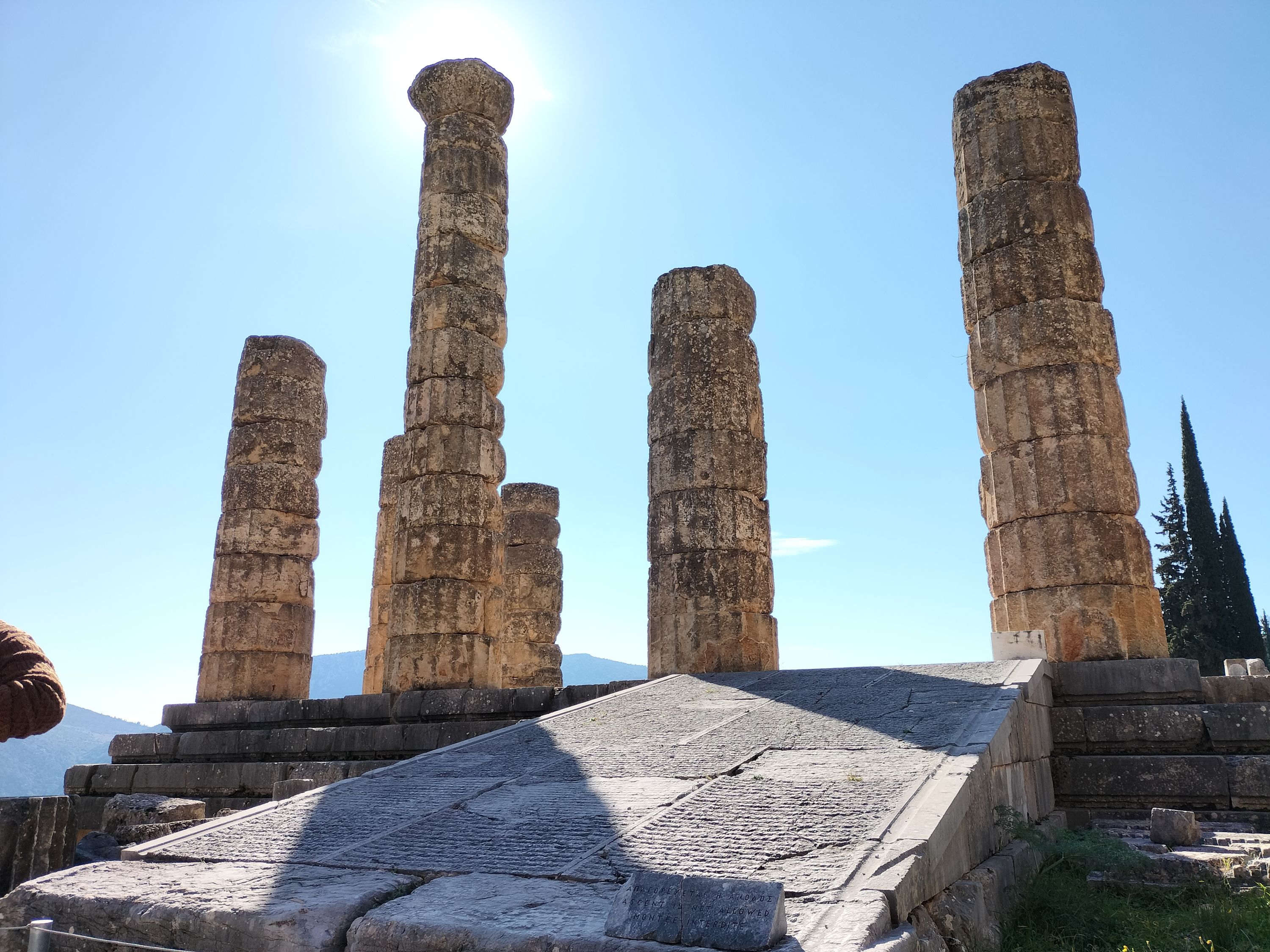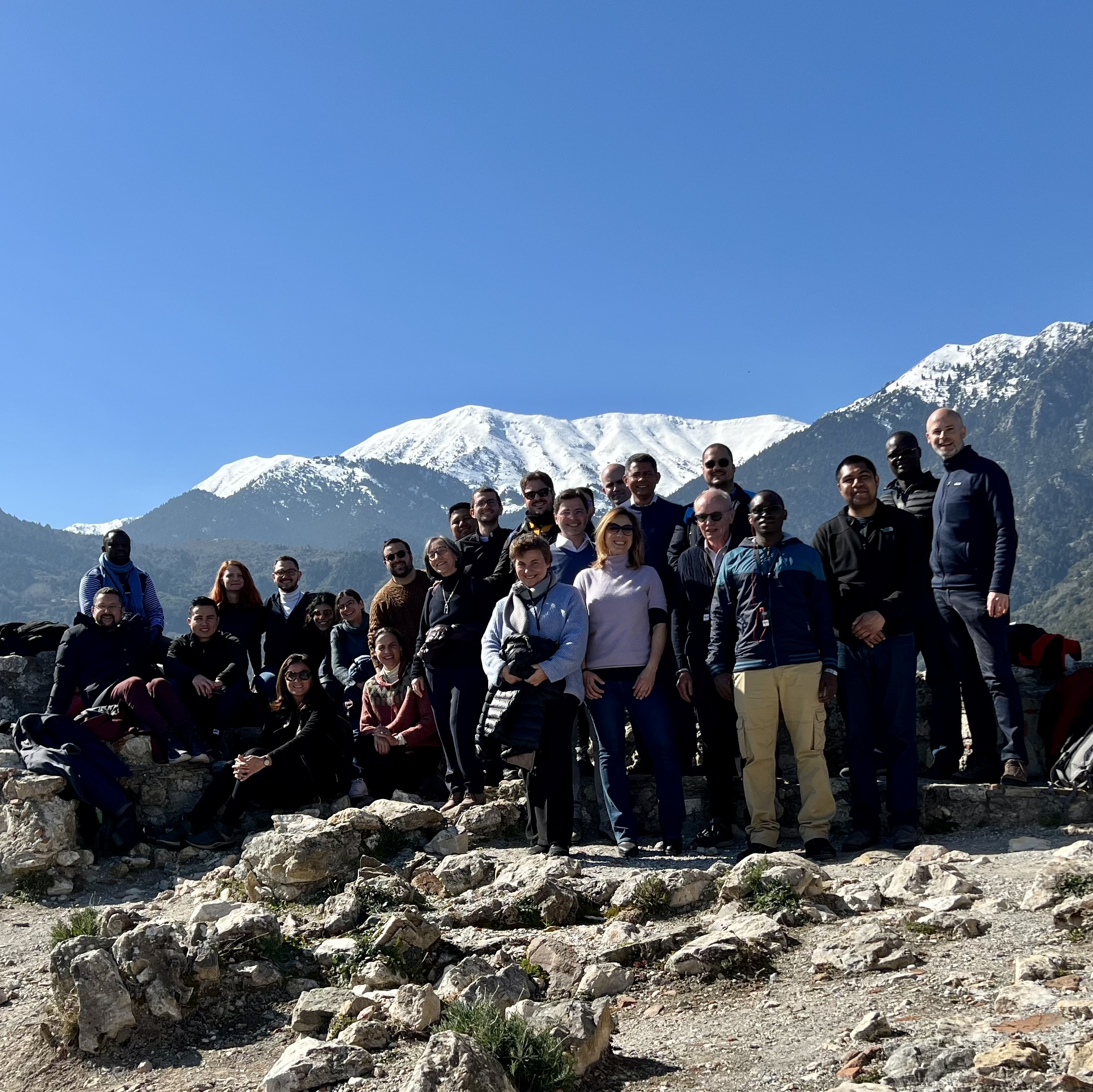- Home
- La Gregoriana
- 62 - Building the Future
- Philosophical pilgrimages between Greece, Turkey and Germany
Share:

The Philosophical Pilgrimages are a new initiative of the Faculty of Philosophy
that allows students to experience first-hand the places
where themes of great importance to them were born and developed.
The first destination of this new project was Greece, the cradle
of classical culture and a fundamental setting of early Christianity.
Second stage: Turkey and the Presocratics. In the autumn of 2024
the "pilgrimage" will take place in south-est Germany.
Last February, the Faculty of Philosophy proposed an unprecedented initiative: a veritable pilgrimage to the ‘Holy Land’ of philosophy, or, to put it in more conventional terms, a study trip to Greece. However, the term “pilgrimage” is not at all inaccurate. Indeed, Greece is not only the homeland of Socrates, Plato, Aristotle, Epicurus, Zeno and many others. It is also the place where Christianity emerged, evangelised by St Paul and his companions, who founded Christian communities in Philippi, Thessaloniki, Athens and Corinth. A twofold journey of learning, therefore, in search of the memory of the philosophers and of the first Christians. And a university course, open to the students of the three cycles of the Faculty of Philosophy, comprising lectures and visits to archaeological sites, with a final examination in the form of a paper for those who wished to have their credits recognised (ECTS).
An unconventional course
The week-long trip (11-18 February 2023) had Athens as its starting point. From there, the journey continued to other destinations. Each day was dedicated to a great author or a great school of ancient Greek philosophy, starting with Socrates, because thanks to him, when philosophy arrived in Athens, it changed shape and developed an unprecedented focus on man. From Socrates, we moved on to Plato, Aristotle, the Hellenistic schools and the encounter between philosophy and Christianity with the scholars of early Christianity.
In addition to Athens and its museums, the students visited Corinth, Epidaurus, Delphi, Sparta and Mystra. Lectures and visits to archaeological sites were complemented by testimonies from speakers involved in challenging contemporary issues such as the ecumenical dialogue with the Orthodox Church and the situation of migrants in refugee camps.
Three faculty members accompanied the group of students - in addition to myself, Stefano Marchionni and Wellistony Carvalho – and delivered the lectures, creating a wonderful atmosphere of sharing and togetherness with the students. This atmosphere is not always found in university classrooms, well protected from inconveniences and unforeseen events, and it is bound to be remembered.

The value of experience and context
Excited and curious, the students participated in the course with a true “pilgrim spirit”, eager to see and experience the concreteness of something that was of great interest to them from a vital perspective. The ancient philosophers were people who offered guidance on how to live and reflect on reality, always starting from a very specific context. The opportunity of experiencing the concreteness of the ancient sites (with the beautiful explanations of our Greek guide, Apostolos) was a thought-provoking experience that offered a general introduction to classical culture and to the spontaneous contextualisation of the philosophical content studied so far: ancient Greek religion, political life, society. This provided a glimpse not only of what it meant to be a philosopher in Athens in the 5th-4th centuries, but also of what philosophy itself represented at its inception. The students were extremely impressed by the ancient sites, although the passage of time has meant that in some cases there was not much left to see, and it took a lot of imagination to fill the gaps, such as Plato’s Academy or the site of the Lyceum of Aristotle, now a public garden with only a few stones left. Still, it was exciting to talk about these authors while standing where they had walked and taught, not to mention the many breath-taking sights (the Acropolis, Delphi).
Pilgrimages of Ancient and Modern Philosophy
Given the success of the first “Philosophical Pilgrimage”, the Department is considering an annual course based on this format, alternating between courses devoted to ancient and to modern philosophy. Clearly, the geographical area in which ancient philosophy developed extends far beyond Greece alone, which is why in the spring of 2024 the Philosophical Pilgrimage will reach the Aegean coast – today’s Turkey - where the so-called “pre-Socratic” philosophy (Thales, Anaximander, Anaximenes, Heraclitus, etc.) was born. The itinerary will include Miletus and Ephesus, the latter a city of great importance owing to the preaching of Saint Paul and a place of the Johannine tradition (it is worth recalling archéand logos, the two key concepts of the philosophy of the Fourth Gospel). The south of Italy is also among the planned destinations, following in the footsteps of the philosophers of the Greek colonies (such as Parmenides). With regard to modern philosophy, in the autumn of 2024 the “pilgrimage” will take place in south-east Germany, in the cities of Tübingen, Heidelberg, Frankfurt and Freiburg, where studies will focus on the authors of German Idealism (Schelling, Hegel, Heidegger), Phenomenology (Husserl, Edith Stein) and the Frankfurt School (Horkheimer, Adorno, Habermas).


